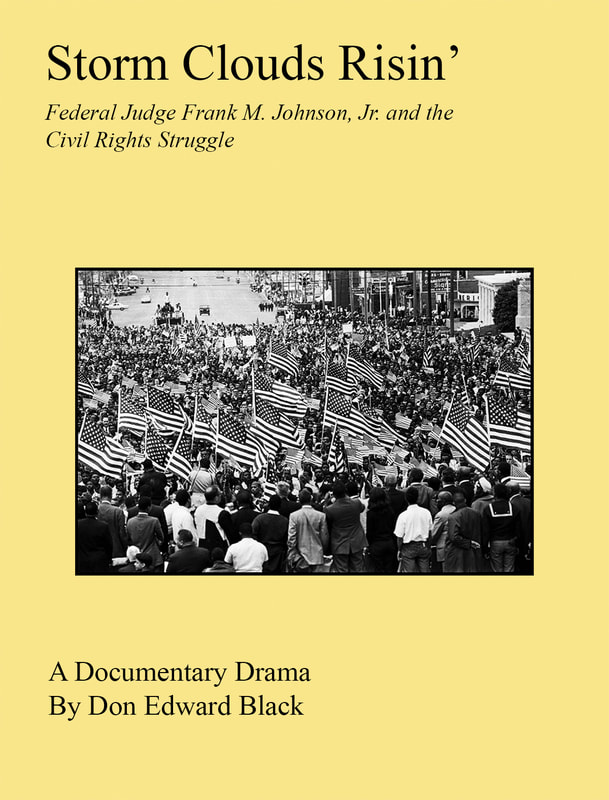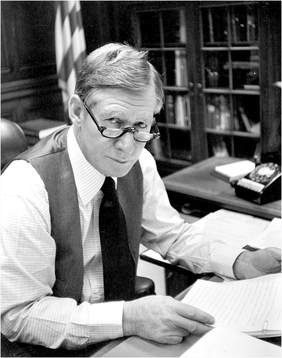|
Hello and welcome to Storm Clouds Risin’. Originally this play, under another title, was written as a traditional play, with over twenty characters, and according to my reviewer, was on the fast track to put everyone to sleep. It was revamped, and as stated below, it is a teaching play. It is the story of Federal Judge Frank M. Johnson, Jr., although one cannot capture a forty plus year career in ninety minutes.
This play is labeled a Documentary Drama and well suited for stage. For high school(s), however, it is primarily a teaching play, and is useful in class because it reveals an insight to the civil rights struggle that is not detailed in most junior and senior high school classes. As an actor and a substitute teacher, I have classroom experience and recall students who regard reading assignments in Government and History as grueling. Down the hall, however, in drama class, those same students relish the opportunity to portray the role of an historic person, deliver a monologue, or discuss their character’s role in a real event which occurred two generations in the past. I believe an alternate and perhaps a more effective way to reach the reader is to portray the event(s) depicted acted live on “stage” or classroom. The first portion of this play brings to life the character, Judge Johnson, regaling his experiences as a Federal Judge. It is a one-man play. It should be “acted”. (For first time readers my instructors referred to this as “cold copy” acting) There is testimony providing role-playing opportunities for students. Supplement contains more testimony. Testimony was obtained from the National Archives in Georgia. Teacher/director can alternate as appropriate. The last portion continues with Johnson still as the main character, and includes five witnesses, including Dr. Martin Luther King, Jr. and future Congressman John Lewis of Georgia. Together, they tell the story of Selma from a first-person account. |
Federal Judge Frank M. Johnson, Jr.Judge Frank M. Johnson, Jr. (1918-1999) was a legendary Federal Judge from Alabama whose historic decisions led to ostracism, cross burning, and death threats, yet helped change the face of the segregationist South in the 1950’s and 1960’s.
The judge set standards in the South, and in voting rights, the nation. He was a pioneer for:
|
Frank Johnson was one of a kind. If I were a law school Dean, I would require every first-year law student to study
his life—assured that once they did, they would adopt him as a role model. If I were counseling aspirants
for political office, I would cite Frank Johnson’s decision in the heat of battle as lessons in courage. And, if asked
why Frank Johnson carried himself as he did, I would say that he was simply doing what the prophet Micah instructed:
"And what doth the Lord require of thee, but to do justly, and to love mercy, and to walk humbly with thy God.”
The Honorable Gerald Bard Tjoflat
Eleventh Circuit Court of Appeals
Atlanta, Georgia
his life—assured that once they did, they would adopt him as a role model. If I were counseling aspirants
for political office, I would cite Frank Johnson’s decision in the heat of battle as lessons in courage. And, if asked
why Frank Johnson carried himself as he did, I would say that he was simply doing what the prophet Micah instructed:
"And what doth the Lord require of thee, but to do justly, and to love mercy, and to walk humbly with thy God.”
The Honorable Gerald Bard Tjoflat
Eleventh Circuit Court of Appeals
Atlanta, Georgia

